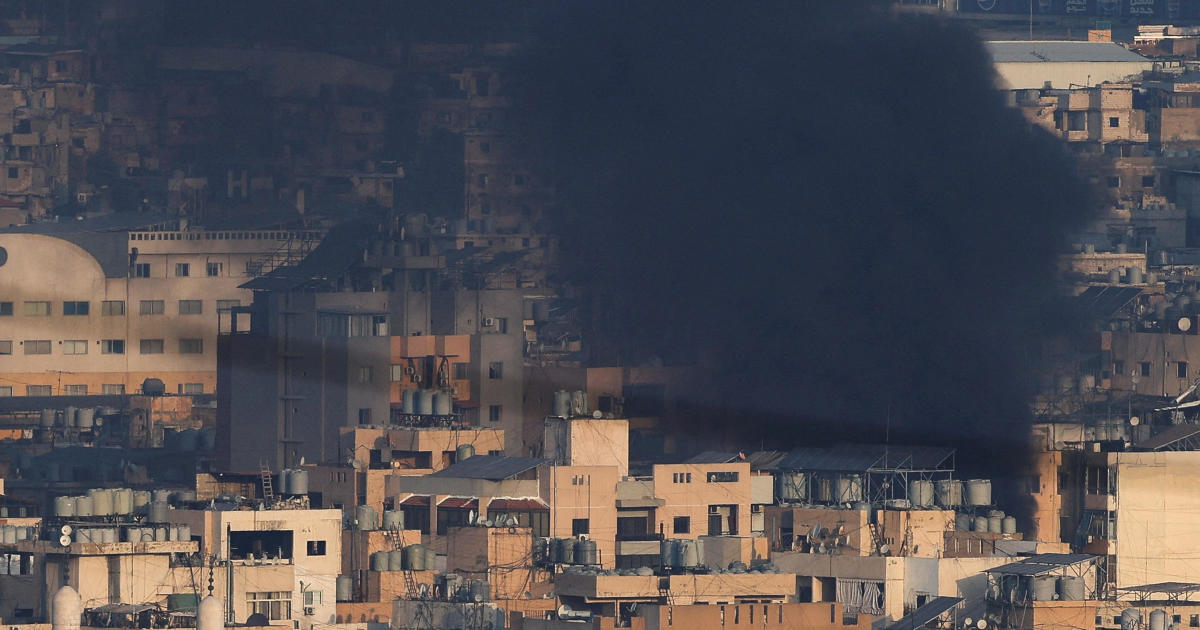Israel’s military operations in Lebanon have sparked international concern over civilian casualties and the expanding scope of the conflict. The Israeli Defense Forces (IDF) have conducted numerous airstrikes targeting Hezbollah infrastructure, including weapons caches and tunnels in Beirut’s southern suburbs, resulting in a significant humanitarian crisis. The escalating conflict has led to a sharp rebuke from the United States, which has expressed its opposition to the IDF’s campaign and warned of potential consequences if humanitarian aid to Gaza isn’t increased. This article delves into the details of the conflict, the growing civilian death toll, and the international response to the situation.
The IDF’s Operations in Lebanon: Targeting Hezbollah Infrastructure
The IDF’s military operations in Lebanon are primarily focused on dismantling Hezbollah’s military capabilities. These operations involve airstrikes targeting weapons caches, tunnel networks, and other infrastructure used by the Iran-backed group.
Airstrikes and Ground Operations
The IDF has carried out numerous airstrikes in Lebanon, particularly in areas considered Hezbollah strongholds like the Dahiyeh suburb of Beirut. These strikes, often occurring at night, have caused significant damage and resulted in a high number of civilian casualties. Alongside airstrikes, the IDF has also conducted ground operations in southern Lebanon, focusing on areas close to the border. The IDF has shown journalists examples of extensive tunnel systems, allegedly constructed by Hezbollah, highlighting their strategic significance.
The Justification for Military Action
The Israeli government has justified its actions by stating that the goal is to prevent Hezbollah from launching rockets and drones into Israeli territory and allow the safe return of displaced Israeli citizens near the northern border. Prime Minister Benjamin Netanyahu and other officials emphasize that the operations are limited in scope and targeted at Hezbollah military infrastructure, and that Israel seeks only to neutralize the threat. However, critics have argued that these operations disproportionately impact the Lebanese civilian population.
Humanitarian Crisis and Civilian Casualties
The Israeli military operations in Lebanon have caused a severe humanitarian crisis. The high number of civilian casualties is a major concern, with Lebanese officials reporting a death toll in the thousands and tens of thousands wounded.
Escalating Death Toll
The escalating death toll has prompted international condemnation. Lebanese officials have highlighted the massive number of civilian casualties as a result of the fighting and the destruction of civilian infrastructure, calling the IDF’s operations inhumane. This figure reflects both direct fatalities from the airstrikes and ground operations, as well as indirect consequences due to disrupted infrastructure, loss of livelihoods, and lack of access to essential services.
Displacement of Civilians
The conflict has resulted in widespread displacement, with hundreds of thousands of Lebanese people, including many children, fleeing their homes in fear for their safety. The UN has expressed deep concern about the humanitarian situation, highlighting the immense needs of displaced families and the vulnerability of children amidst ongoing conflict. The scale of displacement further intensifies the humanitarian crisis.
International Response and US Concerns
The ongoing conflict in Lebanon has prompted significant international reactions. The US has voiced deep concern over the IDF’s actions.
US Condemnation and Pressure
The United States has openly condemned the way Israel has been carrying out the campaign in Beirut. The Biden administration conveyed a stern message to Israel regarding the escalating violence and civilian casualties, adding pressure regarding its conduct. The US has stressed the importance of minimizing civilian harm and facilitating the flow of humanitarian aid. In addition, it has signaled possible repercussions involving its military aid to Israel if the humanitarian situation is not quickly improved.
International Pressure
Other countries and international organizations have expressed concerns about the human rights situation in Lebanon and called for restraint from all sides. International bodies and NGOs are working to provide aid and assistance to those impacted by the conflict. The increasing international scrutiny reflects global worry regarding both civilian losses and the sustainability of the peace and stability of the area.
Conclusion: The Need for De-escalation and Humanitarian Aid
The conflict in Lebanon requires immediate de-escalation and substantial humanitarian aid for the impacted populace.
Takeaway Points:
- The IDF’s military operations in Lebanon are focused on disrupting Hezbollah’s military capabilities, but have resulted in a significant loss of civilian lives.
- The escalating humanitarian crisis requires immediate international attention and a large-scale aid effort.
- The US and other international actors are applying pressure on Israel to de-escalate the conflict and prioritize the protection of civilians.
- The long-term stability and security of the region depend on de-escalation, diplomacy, and lasting solutions to address the root causes of the conflict. The failure to secure a rapid improvement in humanitarian aid, civilian security, and the overall environment could see an escalation of tensions and potential widespread conflict.




